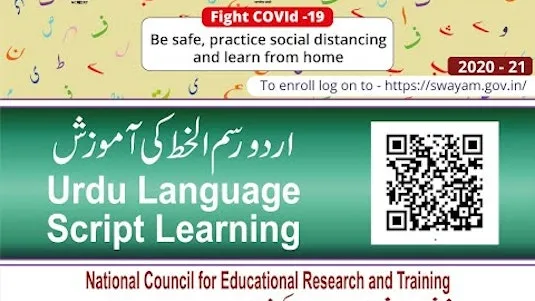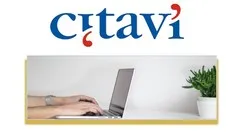
Academic Literacy 
This course introduces learners to the fundamentals of academic literacy, including critical reading, academic vocabulary, and grammar. Learners will gain the skills and strategies necessary to become a self-critical scientific writer and develop well-structured, coherent academic texts. ▼
ADVERTISEMENT
Course Feature
![]() Cost:
Cost:
Free
![]() Provider:
Provider:
Coursera
![]() Certificate:
Certificate:
Paid Certification
![]() Language:
Language:
English
![]() Start Date:
Start Date:
7th Mar, 2022
Course Overview
❗The content presented here is sourced directly from Coursera platform. For comprehensive course details, including enrollment information, simply click on the 'Go to class' link on our website.
Updated in [March 06th, 2023]
1. Critical Reading Skills: Learners can gain important critical reading skills to help them develop as a self-critical scientific writer. This includes the ability to identify the main points of a text, to recognize the author's purpose, and to evaluate the evidence presented. This will help learners to become more effective readers and writers.
2. Academic Vocabulary: Learners can gain practical tools and effective strategies for increasing their academic vocabulary. This includes learning how to use academic language correctly and accurately, as well as understanding the nuances of academic discourse. This will help learners to communicate more effectively in academic contexts.
3. Grammar: Learners can also gain effective strategies for improving their grammar. This includes learning how to use correct grammar in academic writing, as well as understanding the conventions of academic discourse. This will help learners to communicate more effectively in academic contexts.
4. Coherent Academic Texts: Learners can learn how to write well-structured and coherent academic texts. This includes understanding the structure of academic texts, as well as the conventions of academic discourse. This will help learners to communicate more effectively in academic contexts.
5. Self-Reflection: Learners can also gain important self-reflection skills. This includes the ability to reflect on their own writing and to identify areas for improvement. This will help learners to become more effective readers and writers.
[Applications]
After completing this course, students should be able to apply the skills and strategies they have learned to their own academic writing. They should be able to identify and use appropriate academic vocabulary and grammar, as well as develop critical reading skills to help them become self-critical scientific writers. Additionally, students should be able to apply the tools and strategies they have learned to increase their academic literacy.
[Career Paths]
1. Academic Writer: Academic writers are responsible for creating and editing academic content for a variety of publications, including textbooks, journals, and websites. They must have a strong command of the English language and be able to write in a clear, concise, and accurate manner. As the demand for academic content increases, the need for skilled academic writers is also growing.
2. Academic Editor: Academic editors are responsible for reviewing and editing academic content for accuracy and clarity. They must have a strong understanding of the English language and be able to identify and correct errors in grammar, spelling, and punctuation. As the demand for academic content increases, the need for skilled academic editors is also growing.
3. Academic Researcher: Academic researchers are responsible for conducting research and gathering data for academic publications. They must have a strong understanding of the research process and be able to analyze and interpret data. As the demand for academic research increases, the need for skilled academic researchers is also growing.
4. Academic Tutor: Academic tutors are responsible for providing guidance and support to students in their academic studies. They must have a strong understanding of the subject matter and be able to provide clear and concise instruction. As the demand for academic tutoring increases, the need for skilled academic tutors is also growing.
[Education Paths]
1. Bachelor of Arts in English: A Bachelor of Arts in English is a great way to develop your academic literacy skills. This degree program focuses on the study of literature, language, and writing. You will learn how to analyze texts, develop critical thinking skills, and write effectively. Additionally, you will gain an understanding of the history and development of the English language. This degree is ideal for those interested in pursuing a career in writing, editing, or teaching.
2. Master of Arts in English: A Master of Arts in English is a great way to further develop your academic literacy skills. This degree program focuses on the study of literature, language, and writing. You will learn how to analyze texts, develop critical thinking skills, and write effectively. Additionally, you will gain an understanding of the history and development of the English language. This degree is ideal for those interested in pursuing a career in writing, editing, or teaching.
3. Doctor of Philosophy in English: A Doctor of Philosophy in English is a great way to further develop your academic literacy skills. This degree program focuses on the study of literature, language, and writing. You will learn how to analyze texts, develop critical thinking skills, and write effectively. Additionally, you will gain an understanding of the history and development of the English language. This degree is ideal for those interested in pursuing a career in writing, editing, or teaching.
4. Master of Science in Technical Writing: A Master of Science in Technical Writing is a great way to develop your academic literacy skills. This degree program focuses on the study of technical writing, which is the process of creating documents that explain complex topics in a clear and concise manner. You will learn how to analyze texts, develop critical thinking skills, and write effectively. Additionally, you will gain an understanding of the history and development of technical writing. This degree is ideal for those interested in pursuing a career in technical writing, editing, or teaching.
Course Syllabus
MODULE I: THE READING–RESEARCH–WRITING CONTINUUM
This module will help you acquire critical reading skills so that you will develop as a self-critical writer. The module covers issues related to reading discipline-specific literature, which is indispensable from developing professional expertise in writing academic texts. The focus is on fundamental concepts of scientific writing, such as logical organization and argumentation.MODULE II : DEVELOPING ACADEMIC VOCABULARY
This module covers issues related to building academic vocabulary. The module clarifies word-formation processes, i.e., affixation, conversion, and compounding. The focus is on strategic language re-use and ways of dealing with new words. The module provides software tools for extracting frequently occurring vocabulary specific to an area of research.MODULE III : FUNDAMENTALS OF ACADEMIC GRAMMAR
This module covers issues related to the pragmatics of academic English. The module presents an overview of the English verb system, including the most frequent tenses, three aspects, and two voices. The module highlights the use of correct punctuality, which is of immense help in meeting the goal of the writing process: to ensure clear communication of ideas. The module also explains the role of modality and register in academic writing. Another important issue discussed in the module is the use of parallel constructions for words, phrases, clauses, sentences, and paragraphs of an academic text.MODULE IV : ACADEMIC DISCOURSE
The final module looks beyond the sentence to the ways that grammar structures paragraphs and longer texts. The module covers issues related to the textuality of academic texts, i.e. cohesion, coherence, intentionality, acceptability, informativity, situationality, and intertextuality. In particular, the module focuses on lexical and grammatical cohesion. The module also discusses the concept of paragraphing and what the topic sentence and the statement of purpose mean for effective academic writing.Course Provider

Provider Coursera's Stats at AZClass
Discussion and Reviews
0.0 (Based on 0 reviews)
Explore Similar Online Courses

Urdu Language Script Learning

Machine Dynamics with MATLAB

Python for Informatics: Exploring Information

Social Network Analysis

Introduction to Systematic Review and Meta-Analysis

The Analytics Edge

DCO042 - Python For Informatics

Causal Diagrams: Draw Your Assumptions Before Your Conclusions

Whole genome sequencing of bacterial genomes - tools and applications

Systematic Literature Review : A Practical Guide

Writing & Publishing a Research Paper - Research Paper Guide


Start your review of Academic Literacy